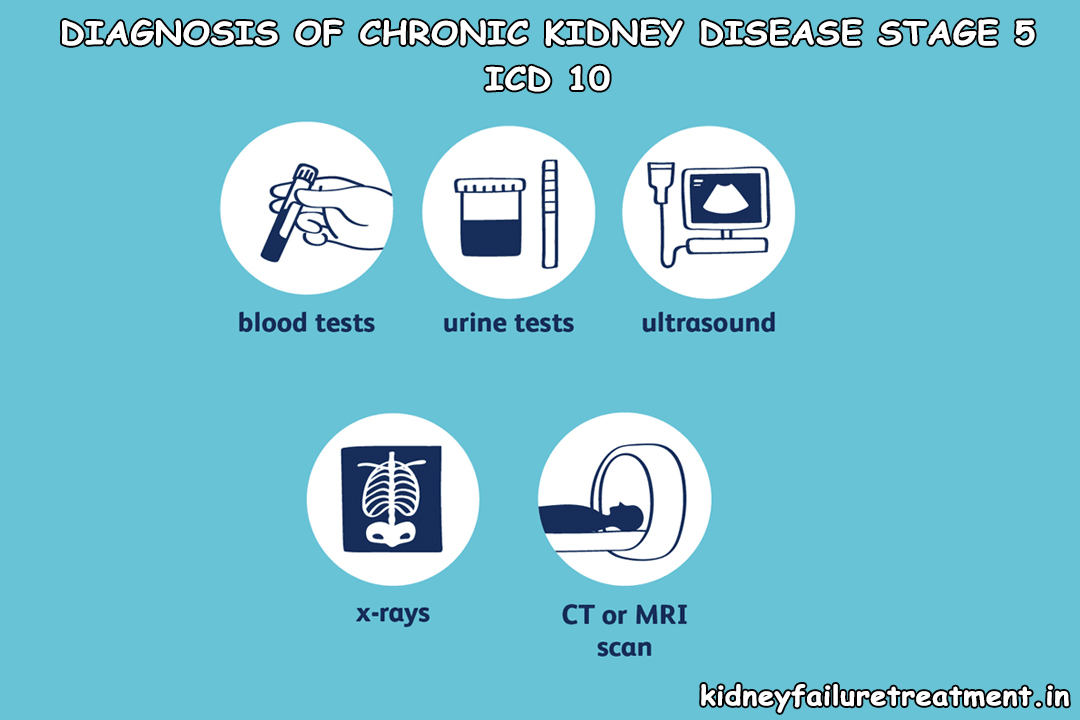Chronic Kidney Disease Stage 5 ICD-10 Explained by Dr. Puneet Dhawan

Patients with Chronic Kidney Disease Stage 5 ICD-10, have End Stage Renal Disease, with a Glomerular Filtration Rate below 15 ml/min/1.73 m². At this stage of advanced kidney disease, kidneys nearly lose almost all their ability to do their job effectively, and eventually, immediate kidney treatment is required, as any further delay might be fatal or life-threatening.
Symptoms of Chronic Kidney Disease Stage 5 Icd-10
Chronic Kidney Disease Stage 5 ICD-10 symptoms include:
- Loss of Appetite
- Nausea, or vomiting and metallic taste in the mouth due to uremia
- Swelling, especially around the eyes or ankles.
- Inability concentrating
- A headache
- Being tired
- Itching
- Making little or no urine
- Muscle Cramps
- Changes in urination, the frequency of urine increases or decreases, urine may have blood; urgency to urinate at night increases; urine is foamy and there is pain or difficulty in urinating
- Inflammation around the heart causes pain in the chest
- fractures or pain in the bones
- Insomnia, Restless Leg Syndrome or numbness in the feet.
Diagnosis of Chronic Kidney Disease Stage 5 Icd 10
- Blood tests are done to check the levels of Blood Urea Nitrogen (BUN), Glomerular Filtration Rate (GFR) and Creatinine.
- Urine tests are also conducted to check protein and electrolytes as well as the presence of abnormal cells.
- To check the size and any obstruction in kidneys, ultrasound of abdomen is done.
- Kidney Biopsy for the microscopic analysis of kidney tissues.
Diet and Chronic Kidney Disease Stage 5 Icd 10
Depending on the level of Kidney Damage, there are varying degrees of Dietary restrictions. For most people with advanced kidney problems as in the case of Chronic Kidney Disease Stage 5 ICD-10, it is crucial to follow a kidney-friendly diet that can help reduce the waste in the blood. Such a diet is referred to as renal diet.
Even if the dietary restrictions vary, it is commonly recommended to patients with all levels of kidney diseases to restrict the following nutrients in their diet:
- Sodium: It is found in many foods and is a major component of common salt that we use daily. Damaged kidneys are not able to filter out excess sodium, which is why it is recommended to limit its intake to less than 2000 mg per day.
- Phosphorous: The deceased kidneys become incompetent to remove excess phosphorus, and increased phosphorous levels cause damage to our body and hence it should be restricted to less than 800-1000 mg per day for kidney patients.
- Potassium: It plays a lot of critical roles in the body, but patients with kidney disease need to limit the consumption of potassium to avoid gravely high levels of potassium. The recommended intake of potassium for Kidney patients should be less than 2000 mg per day
Protein is one other such nutrient that patients with kidney disease need to keep a check on its consumption as the damaged kidneys can’t clear the waste products from protein metabolism.
Every person with kidney disease is different, and hence it’s important to consult your doctor for the individual dietary intake.
Here are three best foods suggestions for Chronic Kidney Disease Stage 5 ICD-10, to look out for:
- Blueberries: Packed with nutrients and being one of the best sources of antioxidants, Blueberries make an amazing kidney-friendly diet. It is also best known to help protect heart disease, diabetes, and certain cancers.
- Red Grapes: Red Grapes are delicious and nutritious fruit, packed with vitamin C and being antioxidant and anti-inflammatory in nature, that helps improve kidney functions and benefits heart problems and diabetes.
- Olive Oil: Being a healthy source of fat and phosphorous free, makes Olive oil a great option for patients with impaired kidney functions.
